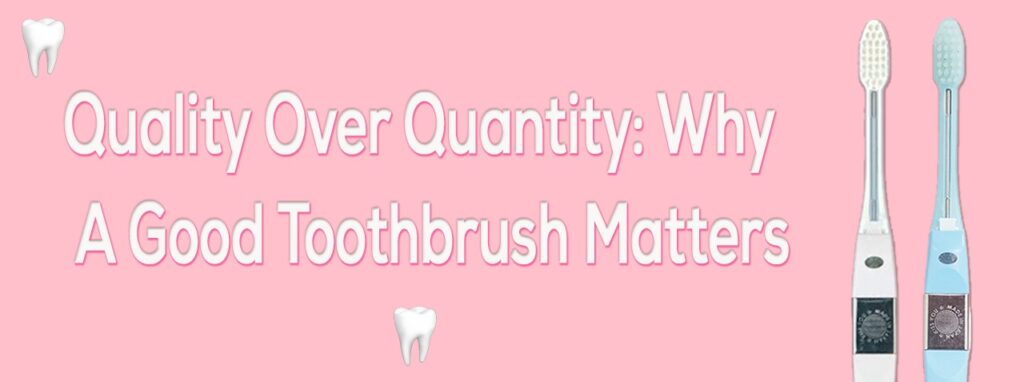A toothbrush is an essential part of maintaining good oral health, but it’s important to know that not all toothbrushes are created equal. Some are designed to be better than others at removing plaque and other debris from your teeth and gums, improving the overall health of your mouth. It’s also important to make sure you’re using your toothbrush properly to get the most out of it, which involves brushing twice daily, replacing your toothbrush every three months, and avoiding chewing on the bristles! Keep reading to learn more about how to select the best toothbrush for you!
The best toothbrushes
Ask any dentist what kind of toothbrush you should use, and they’ll likely tell you to pick a soft one. The simple reason behind that is that hard bristles can cause gum recession while soft ones will help you brush your teeth correctly.
The worst
Cheap, off-brand toothbrushes often have bent bristles and rough spots that hurt your teeth. They’re just… bad. Don’t waste your money on them. If you don’t have a lot of cash to spend, go find a good toothbrush instead of reaching for a freebie. You can find our favourite, budget Ionic Toothbrushes on our website.
Electric vs manual
Manual toothbrushes are what most of us grew up with, and they still have a place in modern dental care. For one thing, they’re cheap—and in an era where people are struggling to get adequate dental care (or any care at all), that can make a big difference. Moreover, manual brushes may be better for people with motor skill issues or limited dexterity—they’re easier to use.
Soft bristles are better
First, start with quality. Just like with a good razor, bristles will only get so close before you need to replace them. That’s why it is important to choose a soft-bristled toothbrush over hard ones that can scrape away at your gums and do more harm than good.

